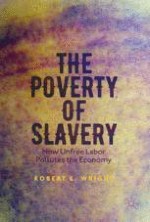2017 | OriginalPaper | Buchkapitel
6. That Which Is Unseen I: Slavery’s Pollution
verfasst von : Robert E. Wright
Erschienen in: The Poverty of Slavery
Aktivieren Sie unsere intelligente Suche, um passende Fachinhalte oder Patente zu finden.
Wählen Sie Textabschnitte aus um mit Künstlicher Intelligenz passenden Patente zu finden. powered by
Markieren Sie Textabschnitte, um KI-gestützt weitere passende Inhalte zu finden. powered by
